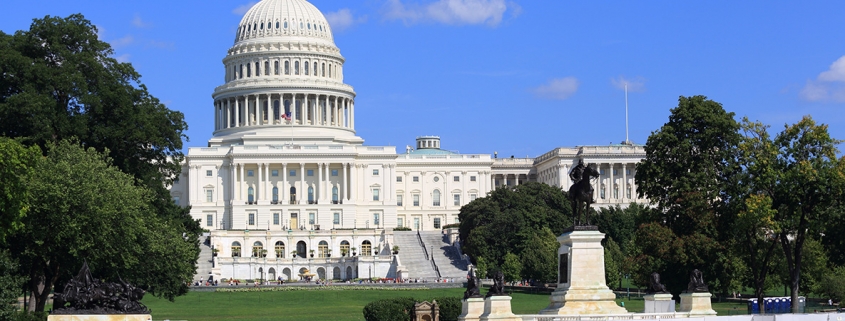Business groups call on congressional delegation to reject federal tax increases
By (New Jersey) | Originally posted on www.roi-nj.com
Eleven N.J. employer groups and trade associations this week called on the state’s congressional delegation to reject increases to the federal corporate tax rate and the Global Intangible Low-Tax Income rate.
While the recently passed $1.2 billion infrastructure agreement included no broad-based tax increases on American businesses, the groups — in an open letter to the delegation — said the prospect of massive tax hikes remains on the table during reconciliation.
Such a move, the groups said, would be a crushing blow to many New Jersey businesses.
“If increased, the ability of workers and businesses across the Garden State to properly rebound from the pandemic could be severely hampered, with our competitiveness on the global stage impacted in the process,” they wrote. “Particularly considering that New Jersey’s tax rates are already among the very highest in the nation, potential hikes at the federal level are cause for concern.”
The following groups signed the letter:
- African American Chamber of Commerce of New Jersey
- Associated Builders and Contractors of New Jersey
- Chamber of Commerce Southern New Jersey
- Chemistry Council of New Jersey
- Commerce and Industry Association of New Jersey
- Statewide Hispanic Chamber of Commerce of New Jersey
- Insurance Council of New Jersey
- New Jersey Bankers Association
- New Jersey Business & Industry Association
- New Jersey Gasoline, C-Store, Automotive Association
- New Jersey Chamber of Commerce
The letter reads as follows:
Dear Members of the New Jersey Congressional Delegation,
We are writing to affirm our shared commitment to delivering New Jersey’s economy out of this current turndown, and to urge your support in this endeavor.
We were encouraged to see that the $1.2 billion bipartisan infrastructure agreement included no tax increases on American businesses. However, discussions are still ongoing for a budget that would be passed through reconciliation — and we understand that the prospect of tax hikes remains on the table.
Specifically, some federal officials have proposed raising the corporate tax rate from 21% to 28% and the Global Intangible Low-Tax Income rate from 10.5% to 21%. If increased, the ability of workers and businesses across the Garden State to properly rebound from the pandemic could be severely hampered, with our competitiveness on the global stage impacted in the process. Particularly considering that New Jersey’s tax rates are already among the very highest in the nation, potential hikes at the federal level are cause for concern.
We are wary of such tax increases and believe they would do more harm than good to New Jersey’s businesses and communities today. New Jersey experienced many lows during the pandemic, including reaching a record 16.2% unemployment rate during the peak of the pandemic and seeing about 30% of the state’s small businesses close their doors, according to some reports. There is clearly a long way to go in our recovery and we must do everything we can to support and boost economic revival in our communities.
But raising the corporate tax rate only serves to further set us back. Such a hike would affect businesses of all sizes, not just the big corporations. As we’ve seen before, tax hikes can ultimately fall onto the Main Street businesses and small shops that form the backbone of local economies across the state. A recent analysis by the U.S. Chamber of Commerce found that 1.4 million small businesses employing 13 million Americans would be forced to pay the higher rate.
And doubling the GILTI rate from 10.5% to 21% poses a host of additional challenges. A study by the National Association of Manufacturers found that up to 1 million jobs could be lost and nearly $20 billion in economic activity may be forfeited.
To protect our state’s economy and ensure a swift recovery, we urge your offices to avoid adding further tax burdens to our business community at this time.



